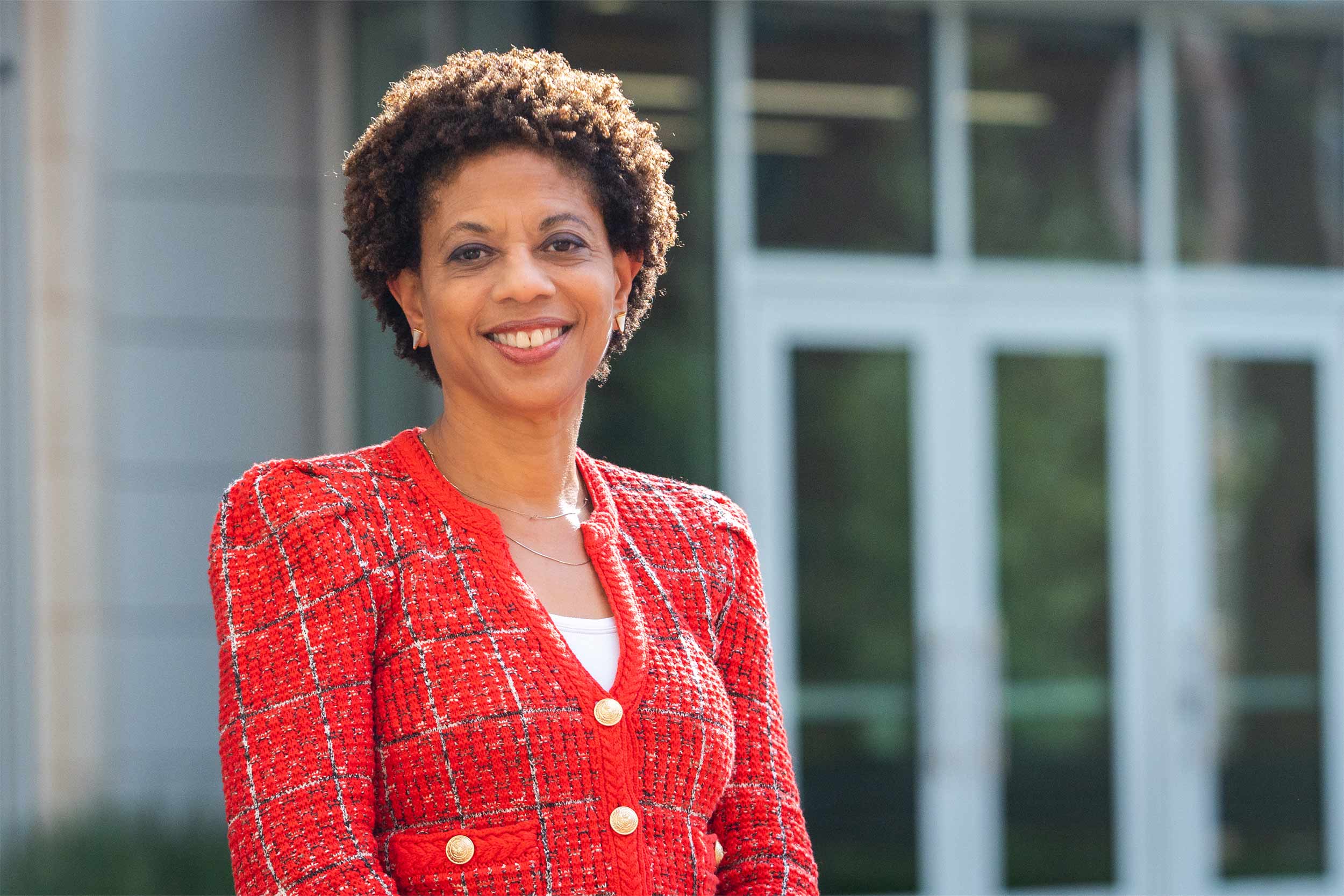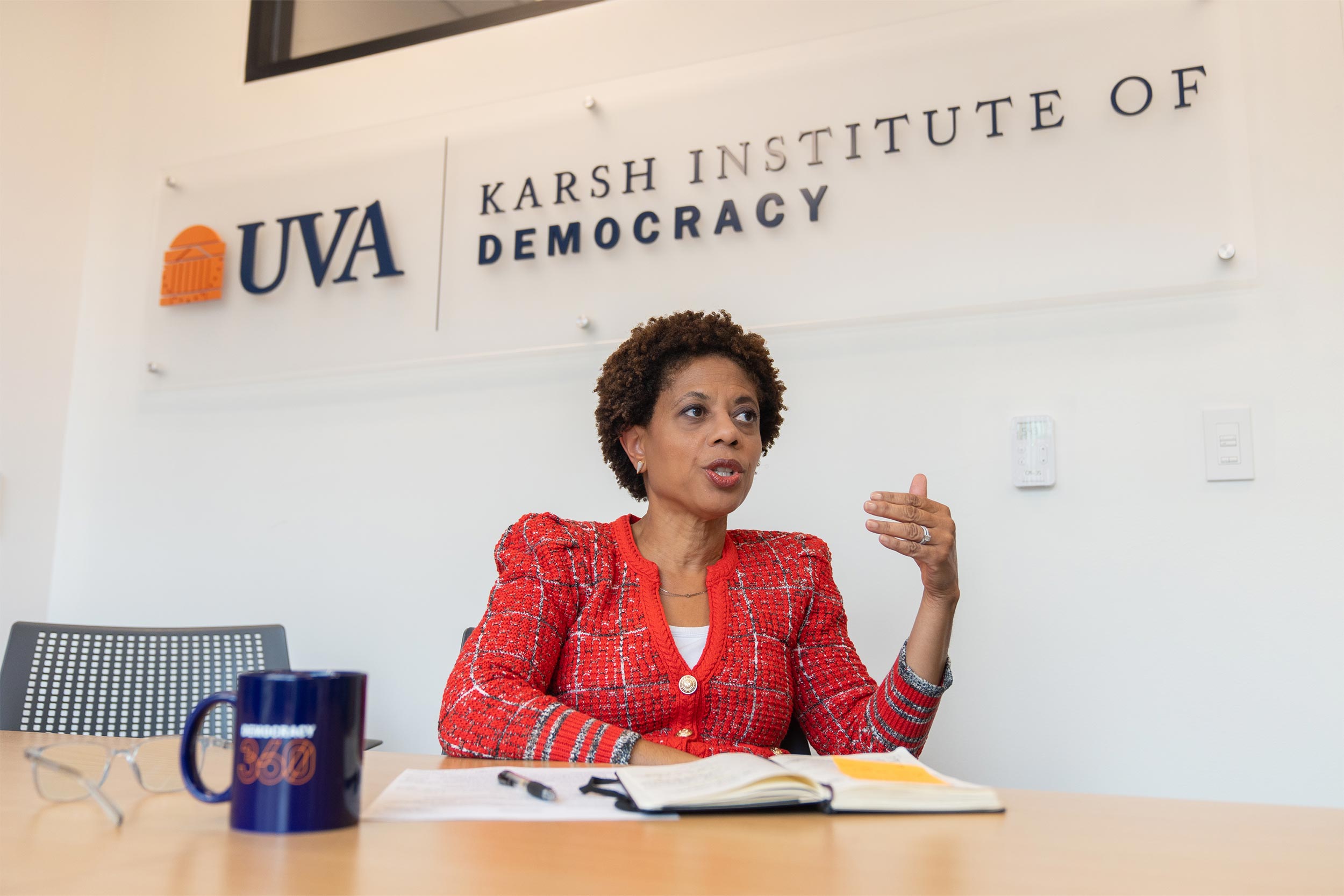That hard work continues to unfold Thursday as the University of Virginia’s Karsh Institute of Democracy hosts three days of speakers, panel discussions, training sessions, student oratory and pitch competitions, and workshops to understand the challenges ahead, and how to meet them. The convening is produced in partnership with 19 partners across Grounds and beyond.
The speakers and panelists include New York Times reporter Peter Baker; CBS News anchor John Dickerson; former U.S. Reps. Adam Kinzinger and Barbara Comstock; journalist and podcast host Kara Swisher; UVA alumnus Alexis Ohanian, co-founder of Reddit; Fox News correspondent Mike Emanuel; former federal court Judge J. Michael Luttig; UVA President Jim Ryan; and a host of UVA professors and experts, including Barnes herself.
Barnes, the Karsh Institute’s executive director, wedged a few minutes into her schedule to talk with UVA Today about the event, its goals and what happens next.
Q. When you and your colleagues talk about democracy being in jeopardy, what exactly does that mean?
A. If you ask people about their concerns about democracy, the answers will be as varied as the individuals with whom you raised the question. To be as effective as possible, at the Karsh Institute, we’ve identified a few big challenges.
Q. What are those big challenges?
A. First, access to trustworthy media and reliable information. Since 2005, we’ve (nationally) lost a quarter of our local newspapers. Many people are getting information from Facebook, LinkedIn, and other forms of social media, and we’re seeing disinformation travel very, very quickly – much faster than facts. Local journalism is in trouble and as a result, so is democracy.
When people don’t have access to information, they can’t hold their representatives accountable. They can’t get information to make choices for their families, their communities, for their country.
Another issue we’re working on is representation, participation and accountability. In other words, how do people engage with the democratic process and democratic institutions, and how do those institutions respond - whether it’s the local school board or Congress? Are individuals able to hold their elected and appointed officials accountable?
We’re also focused on civic learning and deliberative dialogue. Many people are deeply concerned about civil discourse and free expression which are essential to democracy. Our research and initiatives include work on those issues, as well as the polarization shaping our communities and our politics.






